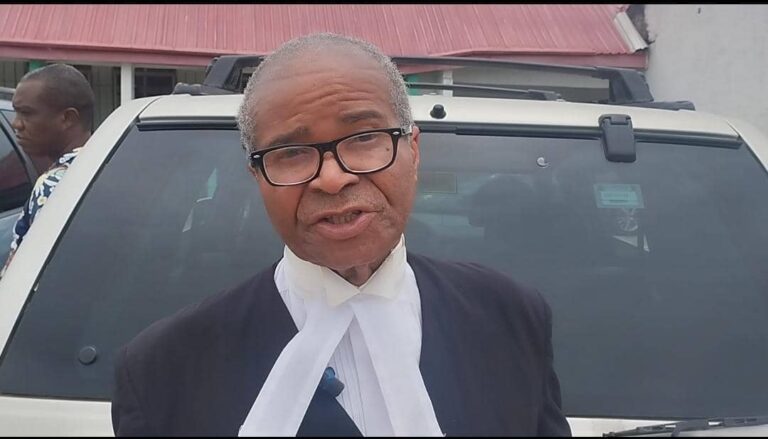One of Nigeria’s foremost legal luminaries, Chief Mike Ahamba, today told an Abia State High Court sitting at Isiala Ngwa that no state High Court in the country can entertain any case brought under the 2023 Electricity Act in connection with the activities of the Nigerian Electricity Regulatory Commission.
Chief Ahamba, a revered Senior Advocate of Nigeria (SAN) and former lawmaker, based his argument on sections 46, 48 and 51 of the 2023 Electricity Act which President Bola Tinubu signed to enhance the ease of doing business in the Nigeria Electricity Supply Industry and to reform the power sector generally for the benefit of all Nigerians.
“The law is explicit in barring state High Courts from entertaining any such matters, as only the Federal High Court is authorized by law to do so”, the SAN, also an influential author, declared before Justice Enyinnaya Ikpeazu who is handling a petition brought before him in January by a group not registered with the Corporate Affairs Commission (CAC).
He read out one of the sections of the 2023 Electricity Act, which provide categorically provides how aggrieved electricity customers can approach the coyrt: “any person dissatisfied with the decision of the Commission under section (2) shall, subject to the rules of the Federal High Court, within 30 days from the date of the final decision of the Commission was reached, file an appeal to the Federal High Court”.
The unregistered group known as the Aba Electricity Consumers Forum had in January approached Justice Ikpeazu over an order by the Nigeria Electricity Regulatory Commission (NERC) to Aba Power Limited Electric last December 30 to adjust its tariff from January 1 to align with the tariffs of the other 11 electricity distribution companies (DisCos) in the country which were reviewed upwards nine months earlier.
The judge had ruled last February that the forum has no right to appear before it or any other court in Nigeria because “it is not registered and, therefore, unknown to the law”.
The court, however, allowed the case to continue in the personal capacity of three Aba residents who claimed to have sued NERC and Aba Power on behalf of members of the unregistered forum.
Chief Ahamba told the Isiala Ngwa High Court that it should have dismissed the action on the first day in January when the case came up because of the glaring provisions of the Electricity Act over the proper court to hear matters arising from this Act.
The plaintiff’s lawyer, Larry Iroka, an Aba-based legal practitioner who had earlier described himself as a great admirer of “Chief Ahamba right from my University of Calabar days when Chief Ahamba, already a most respected SAN, used to visit us in the school to address us on legal and national issues”, challenged the senior lawyer on the ground that any citizen can approach any high court, whether federal or state, to seek justice.
“I think it’s a great thing that will enrich our national jurisprudence”, according to Charles Torti, an electricity law expert who was at the court, “that Chief Ahamba pointed out the key provisions of the 2023 Electricity Act and addressed them with commanding attention”.
Torti told journalists in the court premises when they sought his view on the proceedings: “The Act is meant to facilitate business in the Nigerian electric power sector, and not the other way round.
“What the court decides on the matter when the matter comes up next month will have profound implications for the implementation of the Act in particular and business growth in Abia State in general, as Abia tries to position itself as business-friendly to attract investments”.
Ruling on the jurisdiction of the Abia State High Court at Isiala Ngwa to entertain matters arising from the 2023 Electricity Act will be delivered on May 20.

